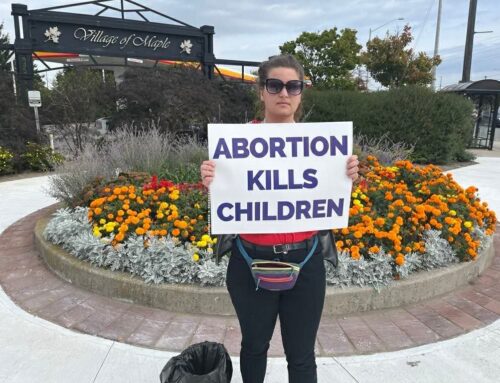After years of debate over euthanasia, it is amazing that so many generally well informed people can remain fundamentally ignorant about the issues at stake.
Consider the observations on end-of-life care expressed by Dr. Cameron Ghent in his book Medicine Outside the Box: Musings about Health-care Issues. Ghent is a distinguished, Yale-trained hepatologist, and recently retired adjunct professor of medicine at the University of Western Ontario, who received the Distinguished Service Award by the Canadian Association for the Study of the Liver in 2011.
Ghent has much to say about the practice of medicine in his book that is authoritative and fascinating. However, his musings on euthanasia are, to say the least, sometimes confusing. For example, he writes: “It always seems odd to me that those, whether patients, physicians, nurses, or policymakers, who most firmly profess to believe that they are going to go to a better place to be reunited with their loved ones are also the most likely to refuse any intervention that might smooth the road or hasten their journey to that place.”
Clearly, Christians who take this view are mistaken. The Church has always understood that in the context of the Bible, the divine commandment “Thou shalt not kill,” prohibits only suicide and murder. In no way does this commandment obligate a faithful Christian to refuse a pain-killing dose of a narcotic that could have the unintentional effect of hastening death.
Pope John Paul II addressed this issue in his encyclical The Gospel of Life. Quoting the words of Pope Pius XII, he reaffirmed the now common teaching of the Christian Church “that it is licit to relieve pain by narcotics, even when the result is decreased consciousness and a shortening of life.”
Of course, it is not surprising that Ghent has run into many well-meaning, but theologically uninformed, Christians who think there is something wrong with providing acceptable pain relief for the dying. These Christians should know better. They should commend conscientious physicians who are willing to smooth the path to death by providing a dying patient with adequate pain relief.
With regard to the law as it relates to palliative care for the dying, Ghent observes that most experienced nurses and physicians of his acquaintance “have no qualms about giving that last dose of a potent narcotic to someone who is in obvious distress, even if the patient stops breathing within minutes because of the effects of that dose.” He adds: “While we can’t admit that we hasten death, lest we be charged with murder, the truth is that we all know that we do.”
Here, Ghent expresses an all-too-common misunderstanding of the law. Section 229 of the Criminal Code makes it clear that homicide is not murder unless the person who causes the death of a human being means to cause his death. Clearly, a physician or nurse does not commit murder if he or she intends to comfort a patient by administering a pain-relieving dose of narcotic that has the unintended, albeit foreseeable, effect of hastening death.
No Canadian physician can be, or ever has been, charged under any section of the Criminal Code with providing adequate pain relief. If a patient is afflicted with intractable pain from terminal bone cancer or some other disease, the law even allows a physician to place the patient under deep and continuing sedation if no lesser measure will alleviate the patient’s suffering.
What a physician cannot do under the laws of Canada is intentionally kill a patient. That’s murder.
And that, in truth, is what the euthanasia debate is all about. Recently, the Parti Quebecois government of Quebec introduced Bill 52, “an Act respecting end of life care” that would authorize physicians to act with the intention of killing patients under the pretence of providing “medical aid in dying.”
In effect, this Bill would sanction the medical murder of dying patients. As demonstrated in Belgium, The Netherlands and elsewhere, this proposal is fraught with the most fateful consequences for the weak, the frail, the depressed and the elderly – the most vulnerable of our fellow citizens.
It is a sorry commentary on the moral degradation of Quebec that the provincial legislature would take such a monstrous suggestion seriously.





